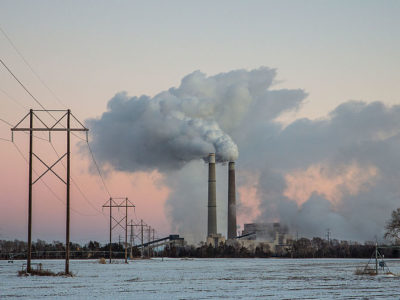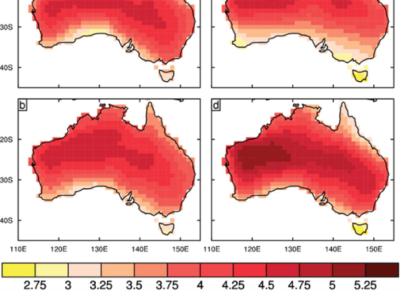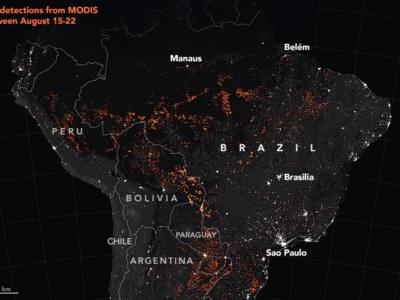Going Nuclear?
Nuclear has some serious problems, but it may be worth hedging our technology bets.
Nuclear power has been an important source of zero-carbon energy, though it has been plagued by other problems. Does it have a future in our effort to decarbonize the grid? According to the Union of Concerned Scientists (UCS), a third of U.S. nuclear plants, or about twenty percent of the nation's total nuclear capacity, are unprofitable and some are already scheduled to close. Some states are subsidizing plants with Zero Energy Credits, and others are considering...
CONTINUE READINGIt’s time the Safe Drinking Water Act got some respect
A new primer that makes the law accessible and teachable
I have been writing about drinking water issues for the past fifteen years and often been struck at how little attention the Safe Drinking Water Act (SDWA) receives in our field. Passed just two years after the Clean Water Act, it gets scant or no coverage in environmental law casebooks and is rarely taught in environmental law courses. There were plenty of conferences celebrating the 40th anniversaries of the Clean Air Act and Clean Water Act. Not so for poor SDWA. T...
CONTINUE READINGSixth International Geoengineering Governance Summer School, 2019
A brief report from a recent Emmett-convened event
As the severity of climate change risks and the inability of current efforts to adequately limit risks become clear, geoengineering technologies – active large-scale environmental interventions to reduce disruptions caused by elevated greenhouse gases – are increasingly receiving attention and generating controversy. These proposals would either remove and sequester atmospheric carbon dioxide or modify the Earth’s radiation balance, such as increasing the planet’...
CONTINUE READINGAnother Court Loss for the Trump EPA
D.C. Circuit enforces deadlines for air pollution compliance
On Friday, the D.C. Circuit issued a brief order in a case called New York v. EPA. In some respects, the order was a foregone conclusion, given the same court's September ruling in a case called Wisconsin v. EPA. But it's nonetheless noteworthy. Both the New York and the Wisconsin case involved a section in the Clean Air Act commonly called the "good neighbor" provision. That section requires EPA to intervene if pollution from an upwind state significantly contr...
CONTINUE READINGLet Discovery Begin!
Unless the Supreme Court intervenes, discovery can begin in the Baltimore climate nuisance case
The oil companies that have fought cities around the country that have filed climate change nuisance cases against them may finally have to tell plaintiffs' lawyers about what they knew about the connection between climate change and their business activities, when they knew it, and what they did in response. The Fourth Circuit Court of Appeals has denied the oil companies' motion to stay proceedings in Mayor and City Council of Baltimore v. BP et al pending the ou...
CONTINUE READINGThe Pro-Environmental Lochner Court
How a conservative Court defended environmental protection a century ago.
Like today's Court, the Supreme Court a century ago was dominated by conservatives. The Lochner era, from around 1900 to 1935, was named after the most notorious case of that period. The Lochner case, which struck down a maximum hours law for workers, epitomized the conservative Supreme Court of that era. Yet that conservative Court also ruled on many occasions in favor of environmental protection. Two years after the Lochner decision, the Court decided Georgia v. T...
CONTINUE READINGClimate Politics Down Under
Australia is leaping from the frying pan into the fire.
Australian climate politics has been strange if not chaotic. And in terms of climate policy, things seems to be going from bad to worse. This is partly a function of general political upheaval. In an enlightening 2018 paper, three University of Melbourne law professors (Baxter. Milligan, and McRae) traced the developments from 2007 to 2016. During that time, they say, only once in 2007 did the government have majority control of both houses of parliament, and “mom...
CONTINUE READINGIn Defense of Live Carbon II: Subnational Leadership in the Fight Against Tropical Deforestation
From California to Brazil, state and provinces around the world are stepping up to fight tropical deforestation. They need and deserve more support.
The fires burning in Brazil and the broader Amazon basin have shined a spotlight on the role of forests and land use in the climate change challenge. For the first time in many years, the fate of tropical forests and their connection to our common future have captured the public imagination around the world. There is a longer history here of periodic bursts of intense public concern about tropical forests—often fueled by high-profile, celebrity campaigns—followed...
CONTINUE READINGThe filibuster and climate change legislation
Should we eliminate the Senate filibuster to advance climate change legislation
As the Democratic Presidential primary season has unfolded, a number of the candidates have argued for eliminating the filibuster in the Senate completely. (It is currently gone for confirmation of nominations of judges and executive branch officials, but remains for substantive legislation.) So has former Democratic Senate Majority Leader Harry Reid. One of the key areas of legislation that advocates for abolishing the filibuster point to is climate change. And i...
CONTINUE READINGWhy is Newsom vetoing SB 1?
Comparing the Governor's statements with the text of the bill
The California legislature recently passed SB 1, which would translate into state law a range of federal environmental and worker safety standards that were in place before the inauguration of President Trump to protect against federal roll backs in those areas. However, Governor Newsom has indicated he will veto SB 1, on the grounds that the bill “does not . . . provide the state with any new authority to push back against the Trump administration’s environmenta...
CONTINUE READING









